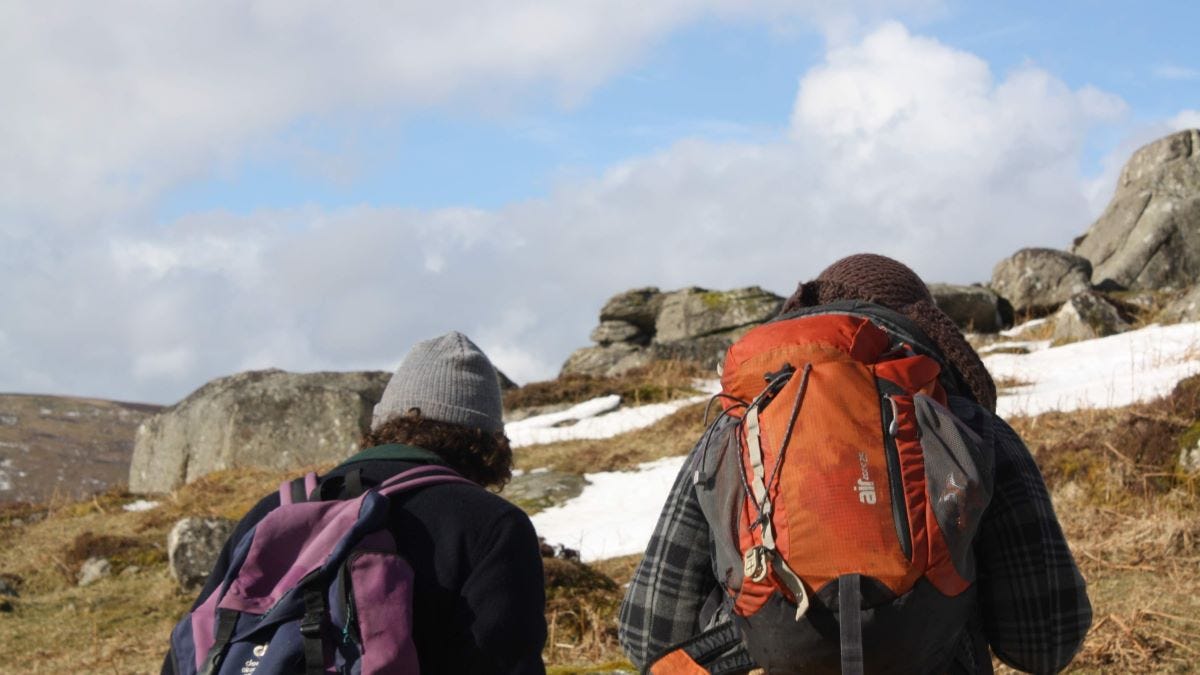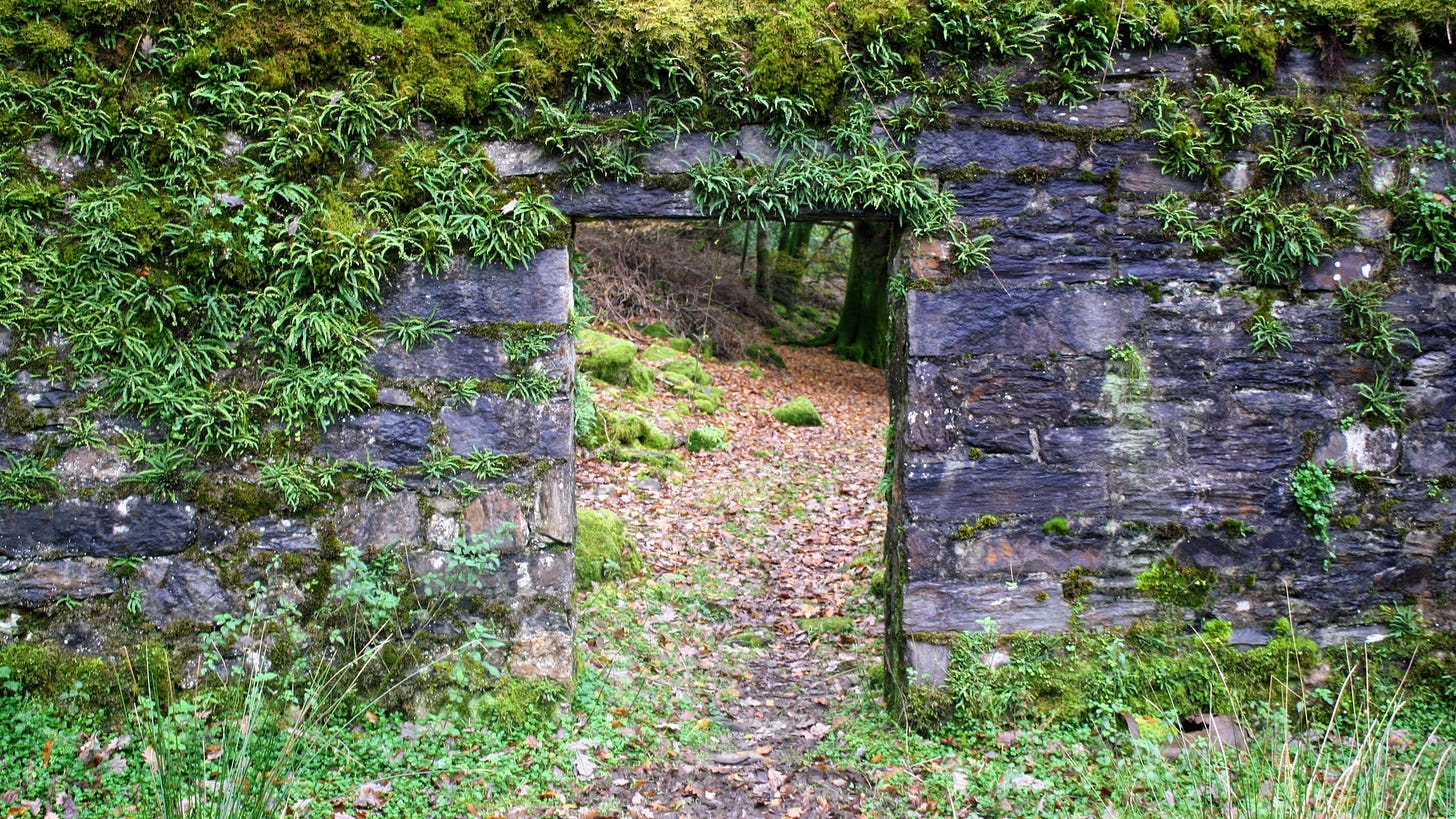Day by day, the pattern of my life reveals itself in the unfolding of individually insignificant actions. From the first coffee of the morning to the moment my head hits the pillow at night, habit and ritual shape my existence.
Habit and ritual are not synonyms, though they are often interchanged. In his book Ritual, Dimitris Xygalatas draws a distinction between them. Habit, he says, is "causally transparent", offering a direct connection between what I do and what happens as a result. Ritual, in contrast, is "causally opaque."
Habit is a how-to guide for a simple life, a series of automatic actions with direct benefits. Brushing teeth, checking pockets and locking doors are the repetitive prose of everyday living.
Ritual is poetry. Symbolic actions fill humdrum existence with magic and meaning. Like carefully chosen lines of a haiku, the beguilingly simple practices of ritual are rich with associations. Tying a ribbon, stepping through a doorway, and whispering words into the silence mean little in themselves, but when carried out with ritual intention, they become powerful gateways to the unseen.
Finding my way
The concept of ritual is often tied to religion, and I should acknowledge that experiences in faith communities can provoke strong emotions, both positive and negative. In many ways, as a survivor of conversion therapy and spiritual abuse, I am a surprising advocate for the benefits of incorporating ritual into everyday life. In the early stages of recovery from my experiences in the church, I ran from anything that looked like religious belief.
In the years that followed, I tried hard to be an atheist. But as my life crumbled once again at the end of my 30s, I began to realise that I could not make sense of a life without mystery. The hard rationality of my secular humanism had crowded the space for wonder and transcendence. I longed to lose myself in the infinite darkness of the night sky, feel the west wind stir the quiet places of my soul, and find myself at home in the family of all beings.
So I walked barefoot in midwinter at the lowest point in England. As I entered the vast birch woodland at Holme Fen, a barn owl flew silently from a solitary holly tree. The soft, mossy earth welcomed my tired, cold feet. I came home to a place I did not know I had lost.
My quest to embrace mystery eventually brought me to druidry. Initially, I was suspicious of a structured approach to spirituality, but in fact, I found a path of great freedom. My studies in druidry encouraged me to trust my intuition, accept only what helped me, and prioritise practical action.
I've called myself a druid for more than a decade, and it's a practice that has enriched my life. One important thing that druidry has taught me is how to create rituals of my own. I learned to orient myself to the turning of the year, celebrate festivals, open and close sacred spaces, and embrace the potential of magic. In the structure of ritual, I discovered a grammar that brings order to rambling experience, turning moments into meaning.
Walking as ritual
In the not-so-distant past, people thought nothing of walking long distances simply to get from place to place. Now, our only experience of a long walk tends to be a hike or pilgrimage.
The dividing line between hike and pilgrimage is not as clear-cut as you might imagine. Pilgrims tend to follow established paths to remote and transcendent places. To my mind, this isn't far different from the hikers who tread the Appalachian Trail to Mount Katahdin. The experience of pilgrimage is open to everyone, and it doesn't have to be confined to sanctioned paths. A hiking route can be a pilgrim's trail, just as post-secular pilgrimage can embrace all kinds of faiths and motivations.
Whether the destination is Santiago de Compostela or Mecca, an ancestral region or the birthplace of a hero, the magic of modern pilgrimage often evaporates at an airport departure gate. This convenient shortcut robs many pilgrims of arguably the most important part of the process: walking home again. Some medieval pilgrims would settle in the place they had travelled to, but most returned to the lives they had left behind. Going slowly home was an opportunity to incorporate the learning of the journey, not least the insight that it is walking that changes you, not some distant shrine.
The pilgrimage pattern of leaving, learning and returning echoes many rites of passage. Across times and cultures, people have been inspired to leave the comfort of home in search of meaning and return carrying treasures for themselves and their community. A rite of passage is a threshold crossing into a new phase of life, and it can change people in profound and unexpected ways. This is true of pilgrimages, too.
Few of us have the privilege to quit our lives to embark on extended periods of wandering. But the rhythm of leaving, learning and returning is open to all of us, even on a walk that takes us around the block.
Crossing thresholds
Doorways are filled with magical potential. Many of us experience this when we arrive in our kitchens and forget what we are looking for. Moving into a new space gives our busy brains a fresh perspective to consume, and so much is left behind as we step across the threshold. Our consciousness shifts.
If I'm in search of answers to life's puzzles, I will often seek out a threshold to cross. Sometimes, it's enough to step over my own doorstep. Other times, a door offers itself to me. A gap in a wall, twin trees on a mountain path, a fallen branch in the woods. All of these crossing points can be entrances to liminal space, the transitional in-between and the nexus of uncertainty and possibility.
Before stepping over a threshold, I find it helpful to centre on an inquiry to carry. Sometimes, these are everyday puzzles to solve; other times, I want to pull my life apart to make sense of it all.
Whatever the question, I bring it across the threshold and trust that the universe is alive with answers. I enter a world that is altered by my intention. Magic is possible here. I listen closely as mystery whispers through the fall of rain and the flight of birds, as butterflies dance and oak trees offer counsel. Sometimes, an insight comes. More often than not, I realise I was asking the wrong question, and the animate world has a new lesson to teach me.
I do not want to wander forever in altered time and space, so I remember to step back over the same threshold I crossed to bring a ritual walk to a close. The moment of return is a chance to incorporate what I've learned and see what treasures I've brought home. I spend time journaling, looking at photos and arranging found objects to remember what I have experienced.
Inspiration for ritual
There are many other ways I incorporate rituals into my walking practice.
I carry objects with me as symbols of different aspects of my life. When I walked the Camiño dos Faros along the coast of Galicia, I carried seven stones with me. They became objects for my attention as I drifted between my internal world and the external landscape.
I go slowly and focus on my steps. The practices of mindful walking encourage me to journey with intention, noticing the movement of my feet and feeling the connection between my body and mind. Walking can ground me in the here and now, shifting my perspective towards the present moment.
And sometimes, if I find myself in a place where the border between the three realms is permeable, I leave an offering. If I am carrying a bottle of water, I will pour some on the ground, giving what’s most precious to honour the land, sea and sky. If I’m making a physical offering, I’m careful only to repurpose what I find and incorporate rapidly biodegradable materials. Ribbons or candles are litter; leaves and flowers are gifts.
Engaging with ritual doesn’t require you to believe anything in particular, except the potential that a simple, deliberate action could change your perspective. So, I hope these practices inspire you to take a step beyond the ordinary.










I really enjoyed this piece, and it gave me a lot to think about.
It's interesting. It seems like you and I come from sort of opposite backgrounds. You grew up in organized religion, then eventually found yourself searching for some kind of alternative spirituality. I grew up in an essentially secular household (we celebrated the presents and the tree part of Christmas), and I think I've been trying to fill the spirituality void for the past two decades or so with varying degrees of self-awareness.
I'm a heavy consumer - and now writer — of fantasy fiction, and I think at its best, fantasy is speaking to that portion of the soul that religion used to for so many of us who weren't taught any kind of spiritual practice.
After all, the magic in fantasy, when it's not just for show, is often a reflection of one religion or another.
I agree with pretty much everything you've said about walking. In fact, I was just yesterday telling my wife that I can't see us living in California long term (where I was born) specifically because it's a "car culture." Everything, all of the infrastructure, was designed with cars in mind. The nearest grocery store to my house growing up was a ten-minute drive... or a thirty-minute walk. To go most anywhere, you've got to get on the freeway, which means you don't walk anywhere at all.
I lived in Japan for six years, and I expect that's where we'll end up, because it's a walking (and public transport) culture. It's not just better for the body (though it is), it's better for the soul.
I've got a tattoo of the rune Thurisaz on my wrist. It means a number of things, including thorn, and the sound
'th' and it's the rune used for Thor, but the reason it spoke to me is because it's a depiction of a threshold.
Your writing has given me a new way to think about those too.
I could ramble on for quite a while like this. Let me just close by saying I'm glad I found your writing.
Cheers.
'I do not want to wander forever in altered time and space, so I remember to step back over the same threshold I crossed to bring a ritual walk to a close.'
I really like this image of going out but also crossing back in regard to the threshold. That feels important to remember to do. Love this piece, Dru.